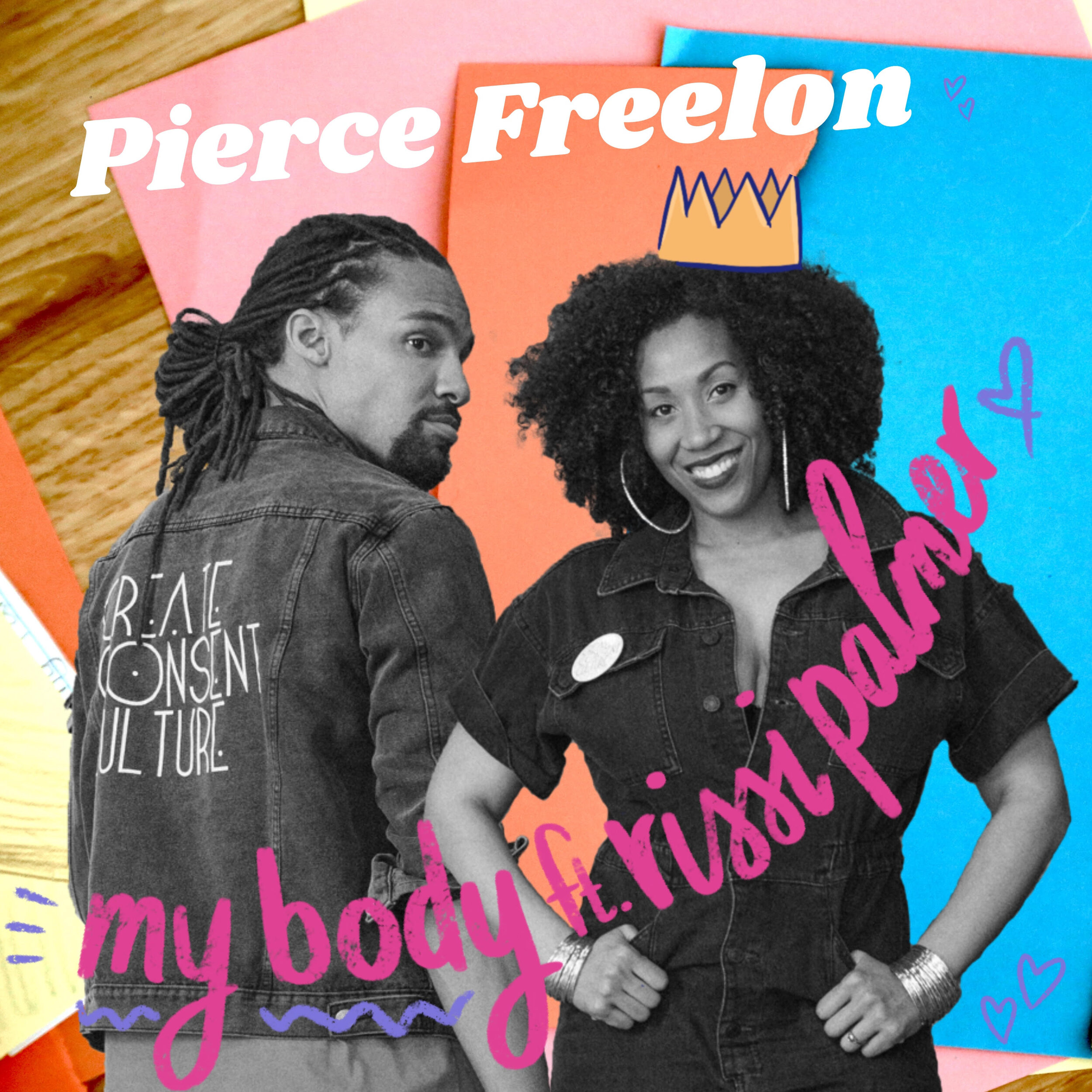Rissi Palmer & Pierce Freelon: My Body
My Body co-written and performed by country star Rissi Palmer is the second single from Pierce Freelon's July released family music album, D.a.D. With catchy lines rooted in the legacies of Queen Latifah's U.N.I.T.Y., Aretha Franklin's Respect and Sojourner Truth's Ain't I A Woman?, vocalist Rissi Palmer sings soul-and-jazz vibe lessons on consent and how to R-E-S-P-E-C-T our words and boundaries.
We had a conversation to find out what consent culture means.
What inspired you to write and get involved with a song like My Body?
Pierce: My Body was inspired by a Blackspace conversation for teens on consent a few years ago. Omisade Burney-Scott of Sistersong Women of Color Reproductive Justice Collective led the conversation. Also present were Nadiyah Barrow and Christina Worthington, founders of Worthy Women NC and Durham-based Create Consent Culture, which grew out of a support group at North Carolina Central University.
So many of the few-dozen teens and parents who gathered for that conversation were completely astonished by the information they were learning about consent and intimacy and touch and permission. It occurred to me then, that families should start discussing consent waaaay before kids become sexually curious or active teenagers. This was on my mind when I reached out to Rissi, who is a brilliant songwriter, and together, we created My Body.
Rissi: Pierce reached out to me with the track a while ago. When I asked what he wanted to talk about, he said “consent,” and I was instantly intrigued. As a sexual assault survivor and the mother of two daughters, consent is important and the golden rule. It was a no-brainer to get involved in this. Once I sat down to write, the song just flowed. I thought about all the things I say to my girls and what I needed to know when I was a child.
Why is a song like My Body important?
Rissi: In a world where 1 in 4 girls and 1 in 6 boys will experience sexual violence before the age of 18, I’d say we owe our children as many messages and conversations as possible about their power and authority over their bodies and also the power of the word "No". It is a sentence on it’s own. I didn't fully understand that until I was an adult. Anything that normalizes doing so for kids makes us a safer society.
Pierce: My Body is important in our focus on creating consent culture. I am a Southern Black Millennial father, Children's musician and Hip Hop head. I don't hear a lot of children's music from the perspective of Black dads, and I hear even less children's music addressing important topics like consent. My favorite musicians, like Bob Marley and Nina Simone, use music as a vehicle to educate, inform, and uplift. I'm all for the occasional mindlessly entertainingly-catchy "Baby Shark" kids song, but saw an opportunity here, to transform and empower - in addition to entertaining. It has a message we can share through the culture of Hip Hop, throughout our world.
Who is a song like this for?
Rissi: I love to reach children and parents. I believe listening to this song can help parents start a "hard" conversation while also normalizing the concept of consent for little ones.
Pierce: I want kids to feel their power when they sing the lyrics: "It's my body. My rules." and "It's your body. Your choice." and "I got body autonomy"- and I want them to love saying it because I want them to believe that it's true, for themselves and others. It’s for young kids and everyone, really.
How are themes in music universal?
Pierce: I used to run an after-school program in the Durham Public School system with poet Kane Smego called Poetic Justice. We told kids, "the personal is universal, and the universal is personal". Your personal, intimate story about your experience will resonate with others, and at the same time - big, broad sweeping ideas will be relevant to your individual existence. When we express ourselves through music, or poetry, or art, we are connecting with a higher power, and others will see themselves reflected in that expression. That's the beauty of being an artist.
D.a.D. streaming now.

